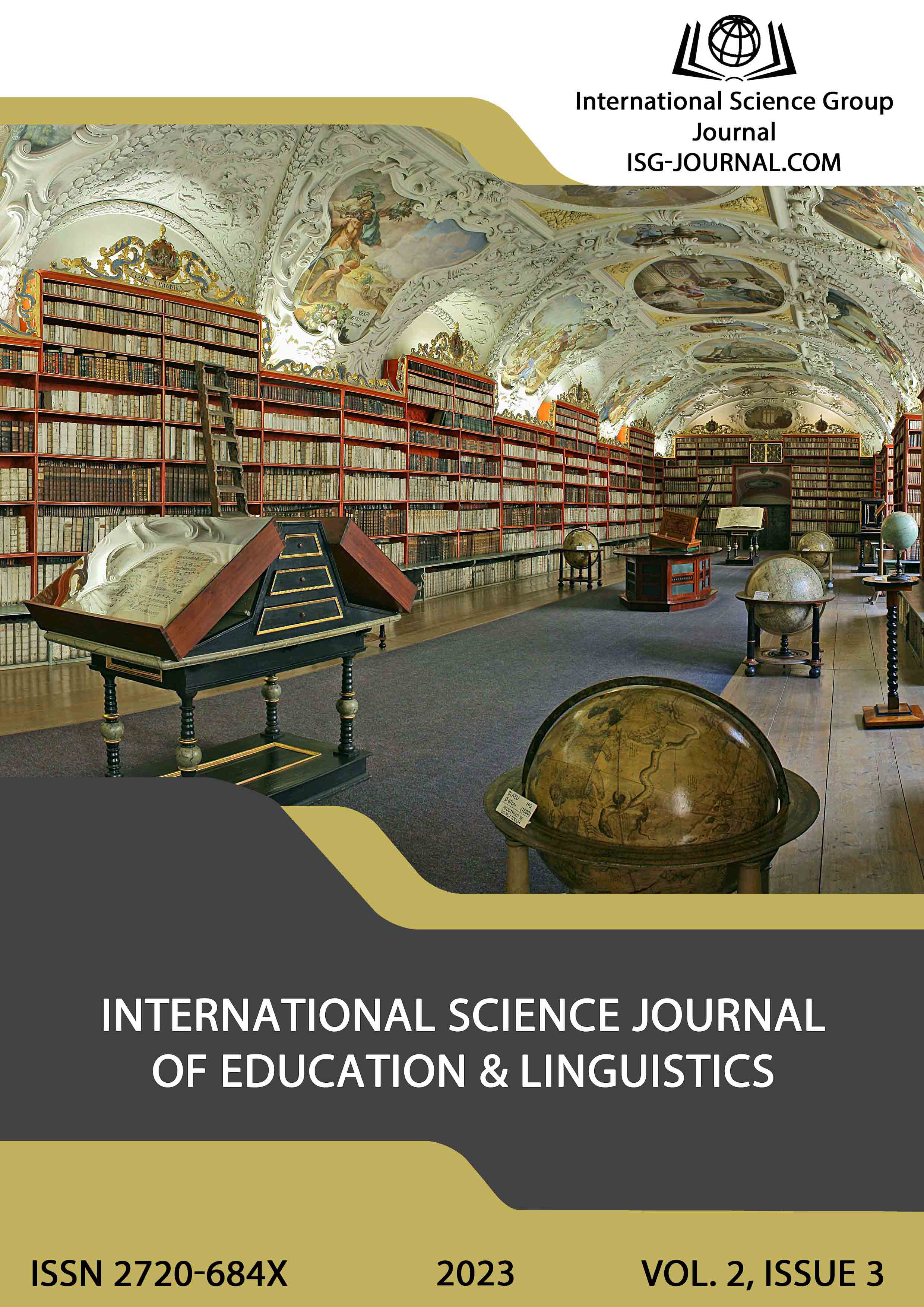Informational trust in the authorities as an educational projection in wartime conditions
DOI:
https://doi.org/10.46299/j.isjel.20230203.03Keywords:
informational trust, informational space, informational war, informational and psychological security, informational and psychological risk, educational influence, powerAbstract
The theoretical explanation of the phenomenon of informational trust in the authorities in the perspective of war conditions reveals the basic aspects of informational and psychological security of an individual. Information trust in the authorities as a personal attitude to information actions and operations accumulates the general psychological state of information appropriation and its use as a priority image of reality. Thanks to the method of psychological reconstruction, the analysis of the functioning of the information system was carried out, the factors and means of forming the information space of the individual were outlined, and the information power in society was described, which is responsible for receiving, selecting, interpreting, producing and distributing information. The relationship between information trust and the problem of personal information security is revealed. The nature of the influences that disrupt the information space of the individual is described, as well as the informational and psychological risk factors that are inherent to the individual are separately indicated. The role of the attitude of responsibility for one's own life formed in a person is determined, which contributes to constructive interaction with society, which is a condition for its integration into society. The context of informational trust in the authorities in conditions of war refers to the consideration of the specifics of conducting informational wars; the logic of influence on collective and individual consciousness as a means of forming a "mass" person, devoid of responsibility and own convictions. The educational specificity of the informational influence on the representation and interpretation of the semantic and moral accents of historical pride and national identity has been determined. Emphasis is placed on the thesis regarding the ability of a person to construct his individual reality by means of meaningful observation and reflective interpretation of the truthfulness of his own feelings, impressions and experiences.
References
Васютинський В.О. (2005). Інтеракційна психологія влади. Київ : КСУ. 492 с.
Хазратова Н.В. (2005). Психологія відносин особистості й держави : дис... д-ра психол. наук. Луцьк. 430 с.
Інформаційний вплив: теорія і практика прогнозування (2011) ; за ред. П.Д. Фролова ; Київ : Міленіум. 304 с.
Коробка Л.М. (2019). Спільнота в умовах воєнного конфлікту: психологічні стратегії адаптації. Кропивницький: Імекс_ЛТД. 286 с.
Слюсаревський М.М. (2018). Наукові уявлення про складові психіки великих груп: спроба інвентаризації. Наукові студії із соціальної та політичної психології. Вип. 41. 126-156.
Коширець В.В. (2010). Інформаційний простір особистості : інтерпретаційні протиріччя визначення. Психологічні перспективи. Вип.17. 118–125.
Пророк Н.В. Глобальний інформаційний простір: його вплив на психологічну культуру педагогів ; [електрон. ресурс] ; режим доступу : https://lib.iitta.gov.ua /719617/1/%D0%9F%D1%80%D0%BE%D1%80%D0%BE%D0%BA_07.19%20(1).pdf
Безпека життєдіяльності (2014) ; за ред. І.Я. Коцана. Харків : Фоліо. 462 с.
Ложкін Г.В. (2003). Інформаційно-психологічна безпека особистості. Персонал. № 3. 78-81.
Ткачишина О. (2019). Психологічна безпека у контексті маніпулятивного впливу на свідомість особистості. Теорія і практика сучасної психології. №.1. Т.1. 178-182.
Хворост Х.Ю., Засєкіна Л.В. (2012). Інформаційна безпека у вимірі інформаційно-психологічної позиції особистості. Актуальні проблеми прикладної психології : мат. III міжнар. наук.-практ. конф. Херсон : ПП Вишемирський В.С. 196 – 200.
Norris P. (2022). Trust in Government Redux: The Role of Information Environments and Cognitive Skills. HKS Faculty Research Working Paper Series ; https://www.hks.harvard.edu/publications/trust-government-redux-role-information-environments-and-cognitive-skills
Почепцов Г.Г. (2000). Имиджелогия. Киев : Ваклер. 768 с.
Шишкіна Х.Ю. (2013). Емпіричне дослідження взаємозв’язку вибіркових ставлень у структурі інформаційно-психологічної позиції та особистісних властивостей студентів. Психологічні перспективи. Вип. 22. 263–270.
Visocki V. (2022). Psicologia da informacao e comunicacao: as matrizes digitais da existencia. Curutiba : Jurua. 256 p.
Daniluk P. (2019). Wojna informacyjna - złożona przeszłość i niepewna przyszłość. Rocznik Bezpieczeństwa Międzynarodowego, 13(2), 149-168. https://doi.org/10.34862/rbm.2019.2.9
Hall S. (2015). A identidade cultural na pós-modernidade. Rio de Janeiro: Lamparina, 102 p.
Morin Ed. (2011). Introdução ao pensamento complexo; tradução Eliane Lisboa. Porto Alegre: Sulina. 120 p.
Downloads
Published
How to Cite
Issue
Section
License
Copyright (c) 2023 Жанна Петрівна Вірна

This work is licensed under a Creative Commons Attribution 4.0 International License.





